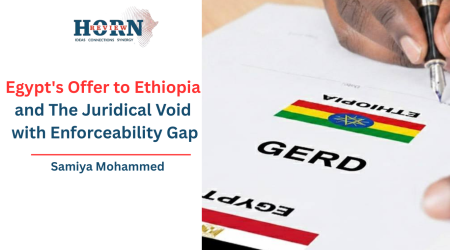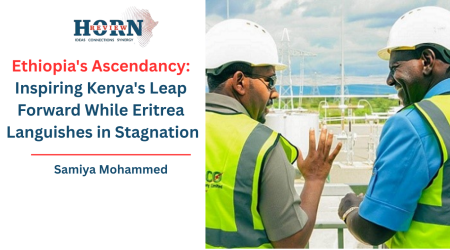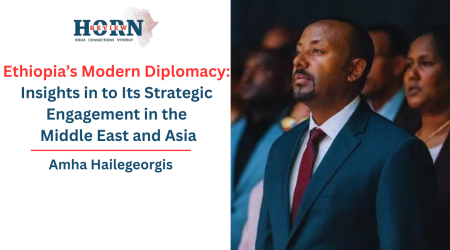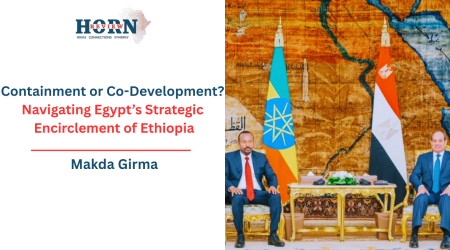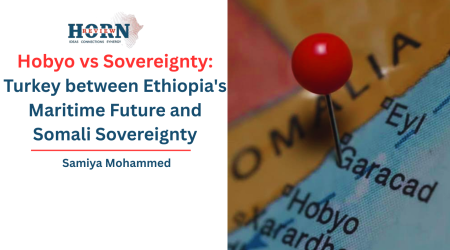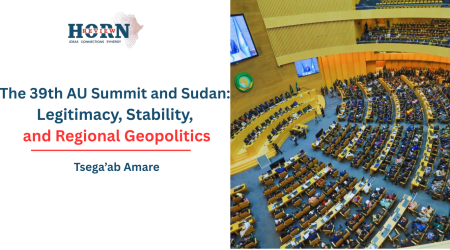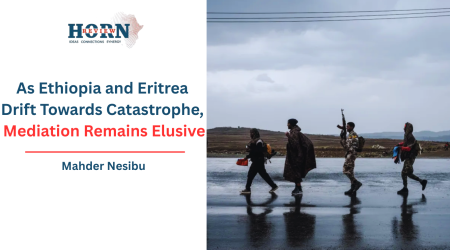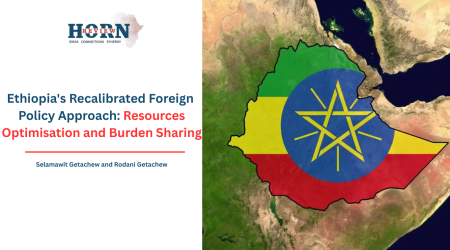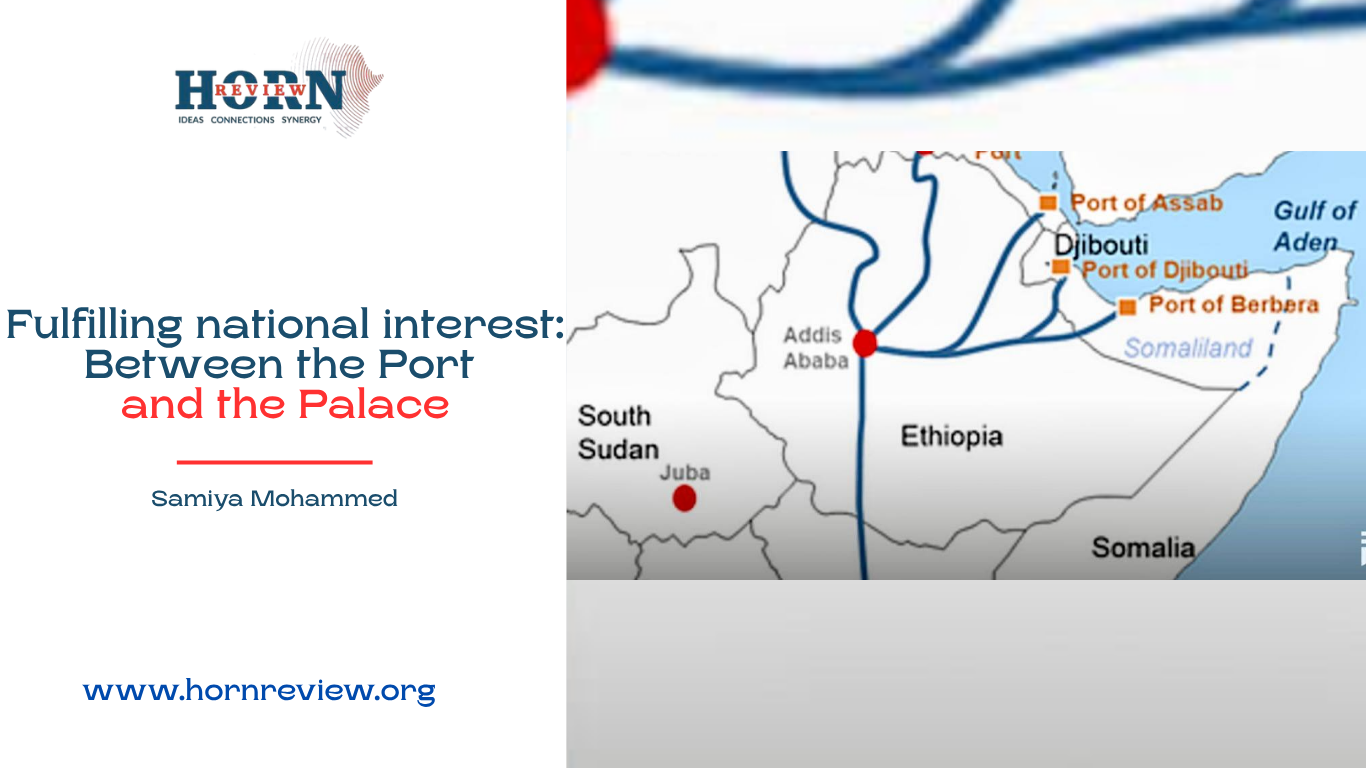
11
Oct
Fulfilling national interest : Between the Port and the Palace
The contention by Somali President Hassan Sheikh Mohamud that Somalia owes its very freedom to Ethiopia shows a tidy departure from decades of confirmed enmity and presents a compelling question, Is Somalia intentionally opening its doors to Ethiopia to strategically counter Somaliland’s recognition efforts? The choice between partnerships with the stable, de facto state of Somaliland and a reconciliation with the sovereign but frail Somali state represents a defining moment for national interests.
To appreciate the significance of the current diplomatic shift, one must first understand the depth of the historical severance. Ethiopia-Somalia relations have been suffused by centuries of conflict, from the medieval wars between the Ethiopian Empire and the Adal Sultanate to the brutal Ogaden War of 1977-1978. This conflict, where Somalia quest to incorporate the Ogaden region into a Greater Somalia, was a Cold War hotspot that solidified a deep-seated rivalry. For Somalia, the loss was a national trauma, and Ethiopian intervention in subsequent Somali civil wars further strained tie.
President Mohamud’s recent statement, therefore, is not just diplomatic pleasantry however it is a fine tuning. It shows a willingness to sublimate historical grievances to address a more immediate existential threat, the potential international recognition of Somaliland. This prelude is likely driven by the realization that the January 2024 Memorandum of Understanding between Ethiopia and Somaliland represents the most significant legitimacy crisis for Somalia’s territorial integrity since 1991. In response, Mogadishu is offering Ethiopia an alternative path, one that respects Somalia’s sovereignty but require relinquishing its deal with Hargeisa.
A partnership with Somaliland offers Ethiopia immediate, low-cost access to the Port of Berbera and a 50 year lease of a 20 kilo meter coastline for commercial and potentially naval development. This deal directly alleviates Ethiopia’s near total dependency on Djibouti.
The existing infrastructure, partially developed by UAE-based DP World, offers a quicker return on investment, enabling faster trade for Ethiopia. The potential integration of the Berbera-Hargeisa-Wajaale trade passageway creates a streamlined economic way free from the bureaucratic delays and clan rivalries that characterize Somalia’s political topography.
In disparity, a partnership with Somalia, potentially under works like the Ankara Declaration, promises access to multiple ports like Mogadishu and Kismayo but would require building new infrastructure from the ground up. This approach, while offering broader integration, is with delays, likely taking years to materialize, and is fasten to Somalia’s unstable economy and federal-regional disputes. The gains from a Somaliland partnership are more tangible, autonomous, and immediately actionable.
The Somaliland agreement grants Ethiopia a strategic asset that a Somalia partnership cannot, the opportunity to establish a dedicated naval base on the Gulf of Aden. This would enable Ethiopia to build a blue water navy, project power into the Red Sea, and protect its commercial interests from threats like Houthi attacks and piracy. This naval is seen in Ethiopia as vital for national security and a mainstay of its ambitions to be a leading regional power.Engaging with Somalia, on the other hand, offers only commercial port access with no explicit provision for a naval base. While Ethiopia maintains a significant troop presence in Somalia as part of AU peacekeeping missions, this role is subject to the approval of the federal government in Mogadishu.
The antagonism is not necessarily absolute. Ethiopia may pursue a policy of dual engagement, deepening ties with Mogadishu while formalizing relations with Hargeisa, a practice already employed by other powers. However, if forced to choose, the estimation from Ethiopia’s perspective leans decisively toward Somaliland. The combination of immediate, autonomous sea access, enhanced military capability, and the long-term strategic advantage of partnering with a stable, functional entity aligns more closely with Ethiopia’s core national interests.
It provides the keys to its economic security and strategic autonomy. While the path of engaging Somalia is aligned with international law and offers a restoration of diplomatic normalcy, it introduces dependencies and uncertainties that clash with Ethiopia’s vision of assertive regionalism. In the Horn of Africa geopolitics, Ethiopia appears serene to bet on the real gains of a partnership with Somaliland over the diplomatic assurances of a reconciled, yet perpetually, Somalia.
By Samiya Mohammed, Researcher, Horn Review

